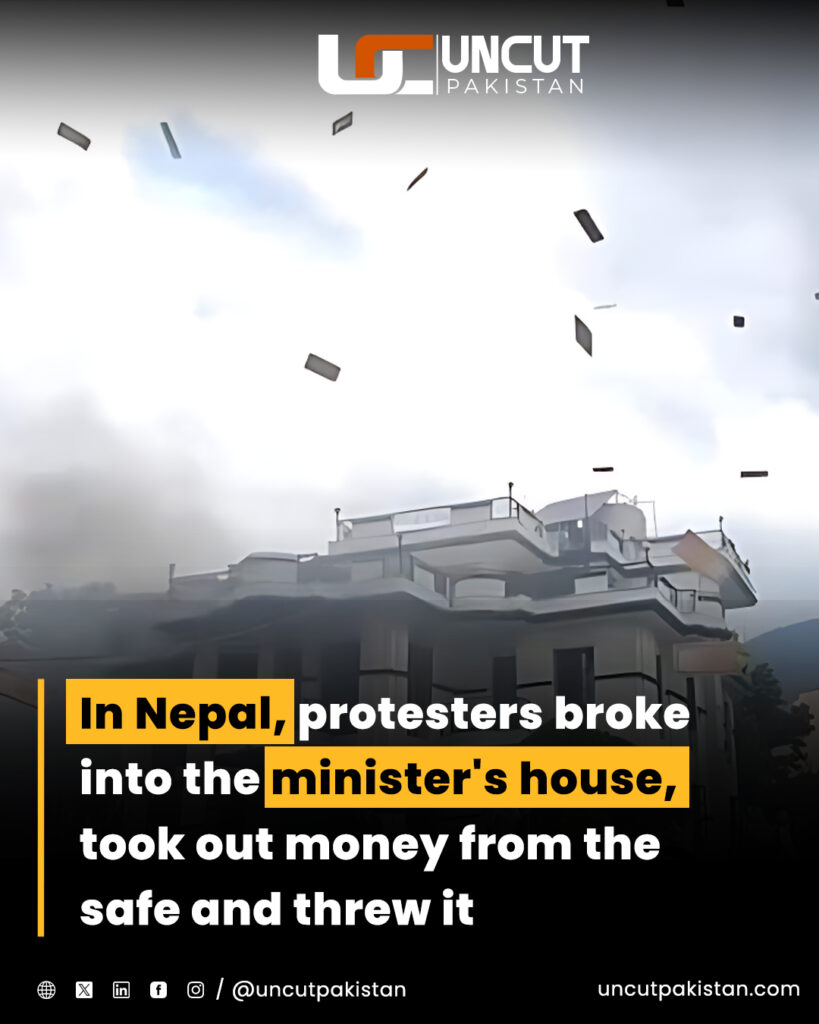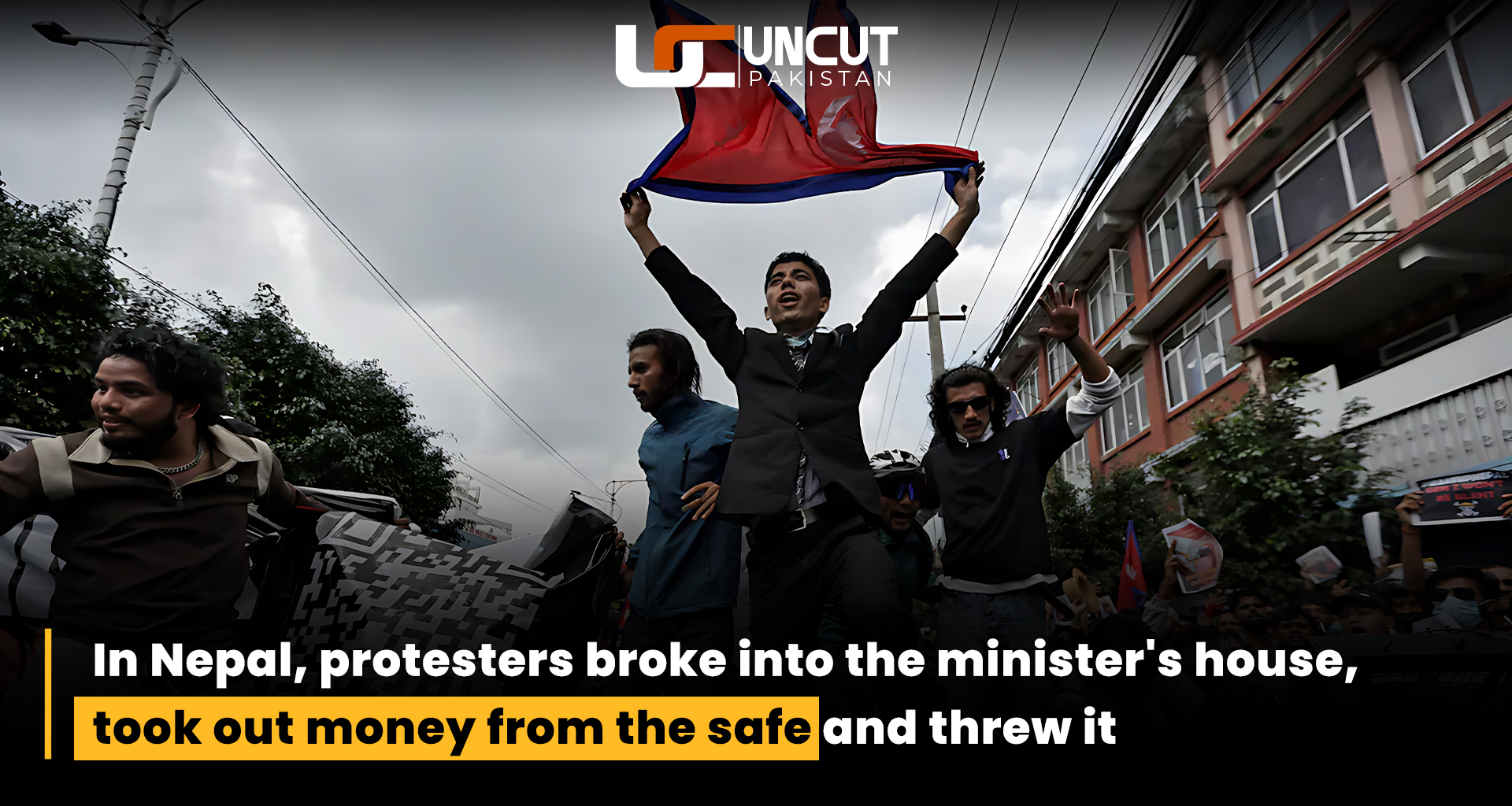The Incident
In a dramatic turn of events in Nepal, protesters stormed the residence of a government minister, forcibly gaining entry and seizing cash stored inside the minister’s safe. According to local media, the demonstrators later threw the money outside, sparking both chaos and curiosity in the neighborhood. The shocking incident has intensified debates around corruption, public frustration, and political accountability in the country.
Public Anger on Display
The protest was reportedly triggered by growing dissatisfaction with the government’s handling of economic hardships, unemployment, and alleged corruption scandals. Witnesses claim that the protesters’ actions were not simply an act of theft but a symbolic gesture aimed at exposing and rejecting what they see as the corrupt practices of government officials.
By throwing the money outside the minister’s house, the protesters wanted to send a strong message: public wealth belongs to the people, not hidden in the safes of politicians.
Police and Security Response
Law enforcement agencies quickly arrived at the scene to control the situation. Clashes reportedly broke out between the protesters and police, leading to arrests and injuries. Officials confirmed that an investigation is underway to determine how the breach occurred and whether the minister’s funds were legally accounted for.
Authorities have remained tight-lipped about the exact amount of money discovered in the minister’s residence, further fueling public suspicion about the minister’s finances.

Political Fallout
The incident has shaken Nepal’s political circles, with opposition leaders demanding a full inquiry into the minister’s assets. Critics argue that this incident highlights long-standing issues of nepotism, corruption, and lack of transparency within the government.
Civil rights groups have defended the protesters’ actions as an act of civil disobedience, while government officials have condemned it as unlawful and violent. The political fallout is expected to deepen divisions within Nepal’s fragile coalition government.
Public Reactions
Videos and images of protesters throwing money outside the minister’s residence quickly spread across social media platforms, going viral and sparking debates both nationally and internationally. Many citizens expressed support for the protesters, while others criticized the act as reckless and damaging to Nepal’s reputation.
Broader Implications
This incident reflects the rising tide of public anger against corruption and mismanagement in Nepal. With a struggling economy, inflation, and political instability, the gap between citizens and the ruling elite appears to be widening. Analysts warn that unless meaningful reforms and accountability measures are introduced, similar acts of unrest could spread in the future.
Conclusion
The storming of the minister’s house and the dramatic act of throwing money into the streets is more than just a protest—it is a symbol of public rage against corruption and poor governance. Whether this incident leads to accountability or simply fades as another controversy will depend on how the government responds in the coming weeks.

